The Benefits of a Plant-Based Diet/Butternut Squash Soup
The Benefits of a Plant-Based Diet/Butternut Squash Soup
By Elaine Bryan
While there are many different styles of eating these days, as there has always been, research continues to validate the many health benefits of eating more plant-based. And quite a few of us don’t even realize that the foods we eat often have more of an impact on our health than anything else in our lives. Even over physical activity, managing stress, adequate sleep, social connectedness – because food also impacts all of those areas as well! And each bite we eat moves us more towards health or disease – It’s all our choice.
What does plant-based even mean? Dr. Colin Campbell, author of the book “The China Study” emphasizes this: “Nutrition must be wholistic: looking at countless nutrients and mechanisms that control many diseases”. Over years of experience and research, it has been found that plant foods contain nutrients in the healthiest ratio (except B12 and D) for the human body. Instead of focusing on individual nutrients, a whole food plant-based diet emphasizes the symphony of nutrient composition that has been proven to be optimal for human health.
For this reason, it has been said that a whole food plant-based dietary lifestyle then maximizes the intake of whole, plant foods and minimizes the intake of processed and animal-derived foods. The diet lifestyle is centered around vegetables, fruits, whole grains, beans, (legumes), herbs, spices, and nuts and seeds.
The benefits have been shown to be many and include a meta-analysis study done in 2017 at Imperial College in London. This study looked at populations worldwide and included up to 2 million people and diseases such as heart disease, cancer, stroke, and more. It analyzed over 95 studies on fruit and vegetable intake and found the greatest benefit came from eating the equivalent of about 10 portions daily. In the research, which was published in the International Journal of Epidemiology, the team estimated approximately 7.8 million premature deaths could be potentially prevented every YEAR if people ate 10 portions of fruit and vegetables a day!
This is significant information to know!
It makes sense because the plant-based benefits include many such as reducing chronic inflammation, decrease in cancer risk and slowing the progression of certain cancers, cardiovascular benefits, improvement in immune function, improvement in diabetes and blood sugar management, increase in energy, sleep, mood and mental clarity and much more.
It has been shown that anti-cancer molecules in certain plant foods can be used to create an environment that is hostile to tumors. This daily intake of these incredible plant foods can then assist in creating the defense mechanisms and environment that can be more protective in the body overall.
One of the plant foods that is beneficial and widely available during the fall/winter and holiday season is squash. One of the favorites is butternut squash and it can be used to make a warming, satisfying soup or even roasted and stuffed with kale, mushrooms including immune-boosting shitake mushrooms, garlic and onions, some nuts, and quinoa. All with their own protective, beneficial plant molecules.
Butternut squash itself contains a substance called beta-cryptoxanthin that has been repeatedly found to lower the risk of lung cancer. By eating foods such as butternut squash, it has been estimated that the risk of lung cancer can decrease between 15-40%. It has also been shown that taking supplements of these plant chemicals or phytochemicals (nutrients) that are in astounding numbers in these plant foods does not have the same effect as eating the plant in whole food and may even increase health risks. Beta-cryptoxanthin can also be found in tangerines, persimmons, and spices such as cayenne pepper, paprika, and chili powder.
The butternut squash also has protective lutein and zeaxanthin that is found in yellow fruits and vegetables and can protect your eyes, and the beta carotene in these plants such as squash are beneficial for heart health as well as supporting the immune system. See below for a Curried Butternut Squash Soup that will help keep you warm and nourished this season!
Beta carotene has also been shown to promote communication between cells, which has been shown to quell the growth of cancer cells, according to a 2020 article in the journal Food Science and Nutrition.
Making these plant foods in a large variety of different colors every day into your diet lifestyle a huge win!
For more information about Elaine Bryan, and for even more yummy and nutritious recipes and tips, visit http://www.bodyandsoulnourishment.com/.
Curried Butternut Squash soup
2-3 Tbsp coconut oil or veggie broth, or Avocado oil spray
¾ cup onions or chopped leeks
1 teaspoon minced garlic
½-1 tsp curry powder
3 cups of vegetable broth
2-3 cups of filtered water
1 can of full fat coconut milk
1 medium-sized butternut squash (peeled and diced into 1-2 inch pieces)
1 teaspoon dried thyme
Sea salt and ground pepper to taste
2 Tablespoons nutritional yeast (optional)
Heat the oil, vegetable broth or use avocado spray in a saucepan and add the chopped onion/leeks, garlic and the curry powder (if desired).
Saute a few minutes until onion and garlic are fragrant.
Add in the cubed butternut squash, the vegetable broth and the filtered water to get to the consistency desired.
Note: You can roast the butternut squash first if desired and then add to the soup and cook less time as the squash will already be cooked.
Cover and simmer until the squash is softened which will be about 20-25 minutes.
If you like the soup somewhat chunky, you can use a masher to mash the ingredients up, or use an immersion blender to blend, or transfer carefully to a high speed blender to blend together until smooth.
Transfer back to pot and add the thyme, salt and pepper, and optional nutritional yeast. Remove from the heat and add the coconut milk. Stir and serve!




Leave a Reply
Want to join the discussion?Feel free to contribute!